15 Home Remedies For Digestive Problems And Prevention Tips
Get your digestive cycle on track with simple and easily available remedies.

Image: Shutterstock
All of us experience digestive problems from time to time. Thirty-four million people in the US suffer from digestive problems. Be it from eating too much too quickly, eating the wrong food constantly, or dehydration, they all can surely give you stomach problems. However, the good news is, there are some simple home remedies for digestive problems you can try to treat the symptoms. In this article, we look at the causes of these issues and a few preventive tips you can try to further avoid digestive problems.

In This Article
What Are Digestive Problems?
The digestive system is a complex and vital part of your body, and it spans all the way from your mouth to your rectum. It helps your body absorb various essential nutrients and facilitates the excretion of waste.
Digestive problems are of different types and may show varying symptoms. When left attended, these issues can lead to complications and chronic illnesses. We have discussed some common digestive issues below.
A survey conducted among 73,076 adults observed that more than 40% of people worldwide have functional gastrointestinal disorders (FGIDs). Further, it also deduced that women had a higher prevalence of FGIDs than men. The odds ratio of 1.7 suggests that women have a 1.7 times higher likelihood of experiencing FGIDs compared to men.
Key Takeaways
- Antioxidants in green tea prevent gastrointestinal tract damage.
- The laxative compounds in aloe vera promote bowel movement and treat indigestion, flatulence, and bloating.
- The anti-inflammatory and antispasmodic properties of fennel seeds aid digestion and alleviate stomach and abdominal discomfort.
- To prevent digestive issues, a low FODMAP diet and a healthy fiber-based diet without high-fat and acidic ingredients is advisable.
Types, Causes, And Symptoms Of Digestive Problems
The following will give you an idea about the different digestive problems:
1. Chronic Constipation
This is when your digestive system cannot get rid of the body’s waste for an extended period.
Cause
It occurs when your colon is unable to pass stools through the remaining of your digestive tract.
Symptoms
- Bloating
- Abdominal pain
- Reduced bowel movements
2. Food Intolerance
This happens when your digestive system cannot tolerate certain foods. Unlike food allergies, food intolerance solely affects digestion.
Cause
A common form of food intolerance is Celiac disease, which also is an autoimmune disorder.
It causes digestive problems upon gluten consumption. The causes range from the absence of a particular digestive enzyme in the body to the presence of certain chemicals in food.
Symptoms
The symptoms of food intolerance are:
- Abdominal cramps
- Bloating
- Headache
- Diarrhea
- Gas
- Irritability
- Vomiting
- Nausea
3. GERD
Frequent heartburn (a digestive problem) can lead to gastroesophageal reflux disease (GERD) that eventually damages your esophagus.
Cause
Your stomach acid going up the esophagus can cause pain and a burning sensation in your chest. This is referred to as heartburn. Frequent and untreated heartburn leads to GERD.
Symptoms
- Discomfort in the chest
- Dry cough
- A sour taste in the mouth
- Difficulty swallowing
4. Inflammatory Bowel Disease
Inflammatory bowel disease (IBD) can affect one or more parts of the digestive tract. It can be
classified into two types:
• Ulcerative colitis, which affects only the colon
• Crohn’s diseasei An inflammatory bowel disease that affects the lining of the digestive tract and causes swelling, diarrhea, pain, and fatigue. , which affects the colon and the small intestine
Cause
Although the exact cause is unknown, IBD is most often associated with genetics (a family history of the disease) and problems with the immune system.
Symptoms
- Fatigue
- Problems with bowel movements
- Weight loss
- Loss of appetite
- Bleeding from the rectum
- Night sweats
 Did You Know?
Did You Know?Now that you have a fair idea about the major types of digestive problems, let us see how they can be resolved by using simple and natural home remedies.
How To Cure Digestive Problems Naturally
- Chamomile Tea
- Apple Cider Vinegar
- Ginger
- Coriander
- Pumpkin
- Peppermint
- Fennel Seeds
- Black Pepper
- Aloe Vera
- Turmeric
- Yogurt
- Vitamin D
- Green Tea
- Lemon Juice
1. Chamomile Tea

You Will Need
- 1 teaspoon of chamomile tea
- 1 cup of water
- Honey
What You Have To Do
- Add a teaspoon of chamomile tea to a cup of water.
- Bring it to a boil in a saucepan.
- Simmer for 5 minutes and strain.
- Allow this herbal tea to cool a bit before adding a little honey to it.
- Drink the tea immediately.
How Often You Should Do This
You must drink this twice daily for optimum benefits.
Why This Works
Chamomile is an age-old remedy for various digestion problems like cramps, diarrhea, and irritable bowel syndrome – thanks to its anti-inflammatory and antispasmodic properties (1). The tea can soothe your intestinal muscles and relieve abdominal pain and discomfort. Similarly, licorice, marshmallow root tea and black tea also help relieve acid reflux and indigestion.
Gina, a blogger discussing her healthy choices, lists her takeaway, stating, “I add chamomile tea during my day to help soften and flush out old waste stuck in my bowel (i).”
2. Apple Cider Vinegar

You Will Need
- 1 tablespoon of raw apple cider vinegar
- 1 cup of warm water
What You Have To Do
- Add a tablespoon of raw apple cider vinegar to a cup of warm water.
- Mix well and consume daily.
How Often You Should Do This
You must do this 1 to 2 times daily, preferably before meals.
Why This Works
Apple cider vinegar stimulates the secretion of digestive juices that assist in digestion by breaking down food. It also relieves common digestive issues like heartburn and indigestion (2).
Caution
If you have problems with gastric emptying, stay away from apple cider vinegar as it can aggravate the issue.
3. Ginger
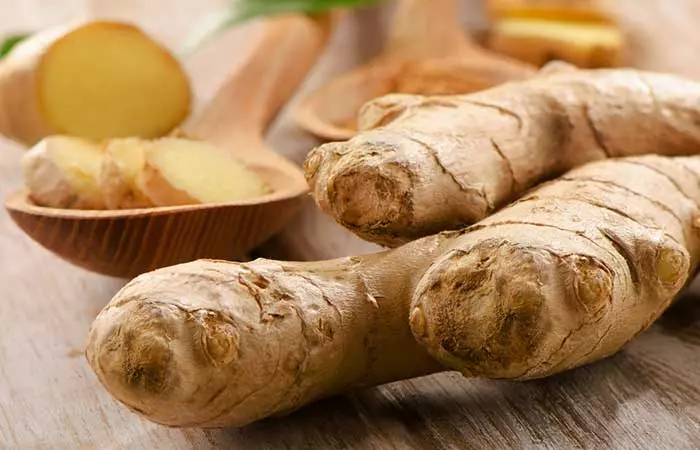
You Will Need
- 1 teaspoon of minced ginger
- 1 cup of water
- Honey
What You Have To Do
- Add a teaspoon of minced ginger to a cup of water.
- Bring it to a boil in a saucepan.
- Simmer and strain.
- When the tea cools down a little, add some honey to it.
- Consume before the tea becomes cold.
How Often You Should Do This
You must drink this 2 to 3 times before meals or before bed.
Why This Works
Ginger is a multifaceted herb that alleviates digestion problems.
Its carminativei The property of a herb or drug to expel gas and prevent its formation in the GI tract to resolve any flatulence issues. nature can help relieve bloating and gas and ease symptoms of nausea and vomiting (3).
4. Coriander Seeds
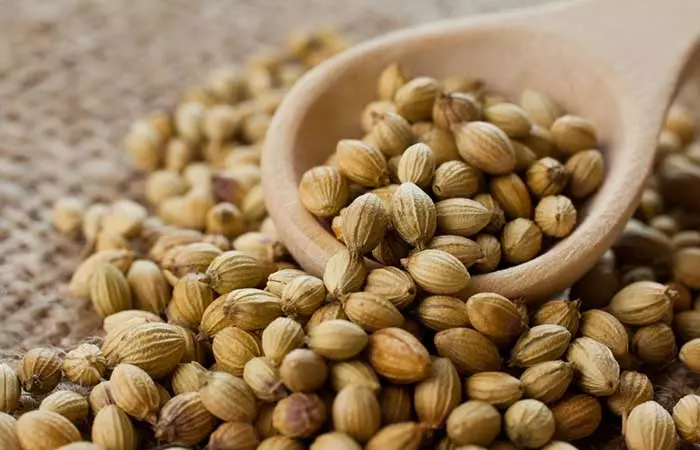
You Will Need
- 1 teaspoon of coriander seeds
- 1 cup of water
- Honey
What You Have To Do
- Bring a teaspoon of coriander seeds to a boil in a saucepan.
- Simmer and strain.
- Cool the tea and add a little honey to it.
- Consume immediately.
How Often You Should Do This
You must drink this once daily.
Why This Works
The carminative effects of coriander seeds help heal an upset stomach and ease digestion, gas, and even bowel spasms (4).
5. Pumpkin
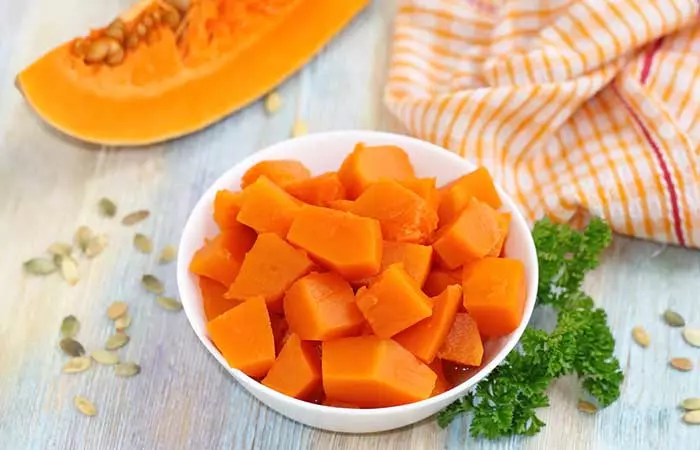
You Will Need
A small bowl of cut pumpkin
What You Have To Do
- Cut pumpkin into small slices and cook them.
- Add the pieces to your favorite soups and smoothies or just consume them as they are.
How Often You Should Do This
You must consume pumpkins once daily for a few weeks.
Why This Works
Pumpkins are rich sources of fiber and low in starch and sugar.
They are easy to digest and great for digestive problems like diarrhea and constipation (5). It can also be added to the vegetable broth to improve its digestive properties.
6. Peppermint
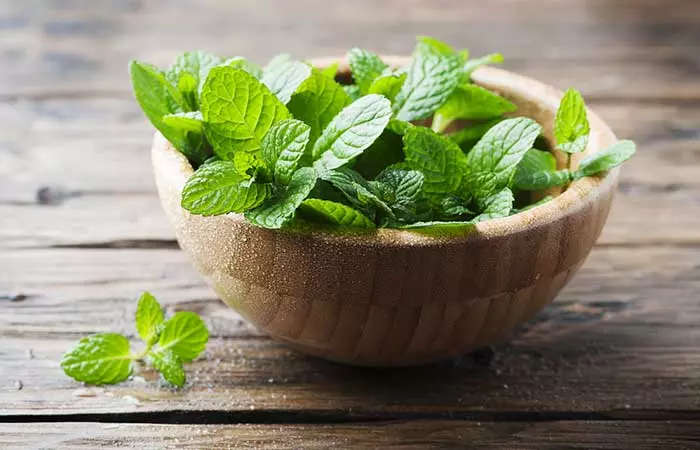
You Will Need
- 1-2 tablespoons of fresh peppermint leaves
- 2 cups of water
- Honey
What You Have To Do
- Take one to two tablespoons of peppermint leaves and crush them.
- Add the leaves to two cups of water and bring them to a boil in a saucepan.
- Simmer and strain.
- Once the tea cools down a bit, add some honey to it.
- Drink the tea immediately.
How Often You Should Do This
You must drink this tea 1 to 2 times daily.
Why This Works
Menthol in peppermint exhibits anti-inflammatory and antispasmodic activities that help relieve digestive issues like irritable bowel syndrome (6). It can also alleviate the associated abdominal pain and discomfort. You can add slippery elm as the mucilage coats the inner lining of the organs and aids bowel movements.
Caution
Do not follow this remedy if you are suffering from nausea or heartburn. Your condition may get aggravated.
7. Fennel Seeds
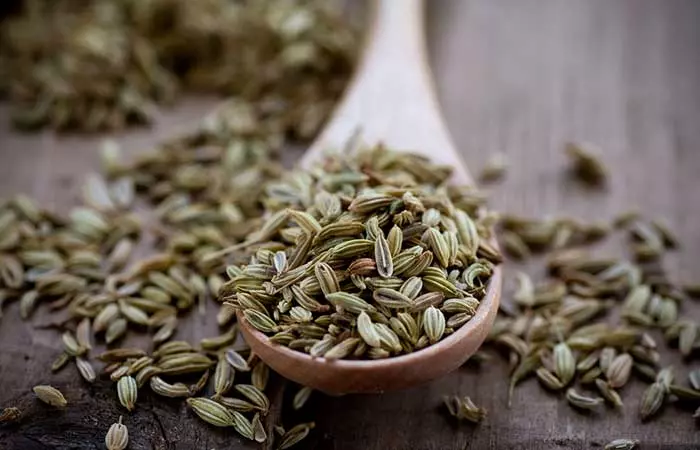
You Will Need
- 1 teaspoon of fennel seeds
- 1 cup of water
What You Have To Do
- To a cup of water, add a teaspoon of fennel seeds.
- Bring it to a boil in a saucepan.
- Simmer and strain.
- Once the fennel water cools down, you can consume it.
How Often You Should Do This
You must drink this mixture 2 to 3 times daily prior to your meals.
Why This Works
Fennel is often used as a carminative and digestive aid. Its anti-inflammatory and antispasmodic properties relieve stomach pain and abdominal discomfort associated with bloating and colic (7). Cumin can also be used in a similar manner to reduce bloating and indigestion.
8. Black Pepper
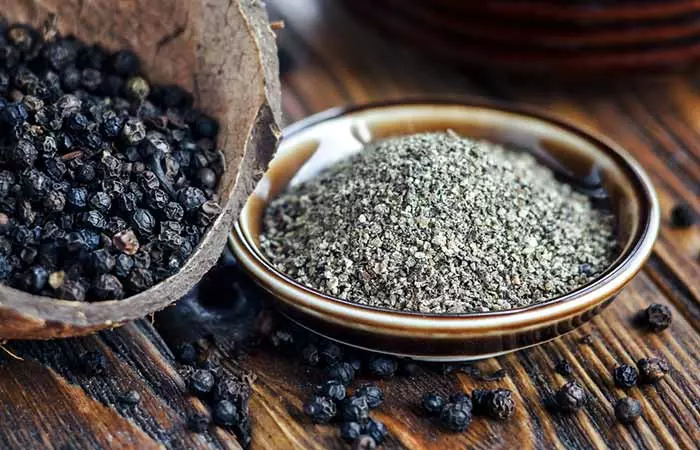
You Will Need
Ground black pepper (seasoning)
What You Have To Do
Add ground black pepper to season your favorite dishes and salads.
How Often You Should Do This
You must do this on a regular basis.
Why This Works
Piperine in black pepper has antispasmodic effects that alleviate digestive problems like diarrhea and constipation (8). Other spices such as cardamom, caraway, dill, anise, and fenugreek can also be used in dishes and teas to improve digestion due to their potent ingredients.
9. Aloe Vera

You Will Need
2 tablespoons of fresh aloe vera juice
What You Have To Do
Consume two tablespoons of fresh aloe juice daily.
How Often You Should Do This
You must do this once daily.
Why This Works
Aloe vera contains laxative compounds like barbaloin, aloin, and aloe-emodin – which promote normal bowel movements. They also help treat indigestion, bloating, and flatulence. The anti-inflammatory activities of aloe vera protect the gastrointestinal lining and alleviate intestinal discomfort (9).
10. Turmeric
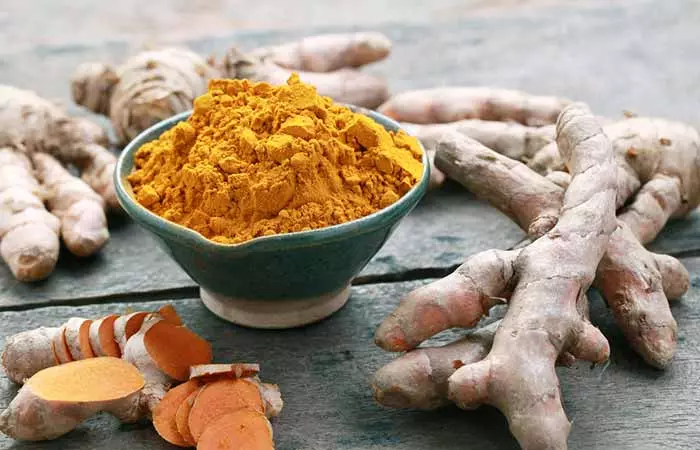
You Will Need
- 1 teaspoon of turmeric powder
- 1 glass of water
- Honey
What You Have To Do
- Add a teaspoon of turmeric powder to a glass of water.
- Heat it for some time and add some honey to it.
- Drink the mixture.
How Often You Should Do This
You must drink this once daily to see the desired effects.
Why This Works
Curcumin in turmeric has anti-inflammatory and antioxidant properties that boost digestive health and protect your intestines from further damage (10).
11. Yogurt
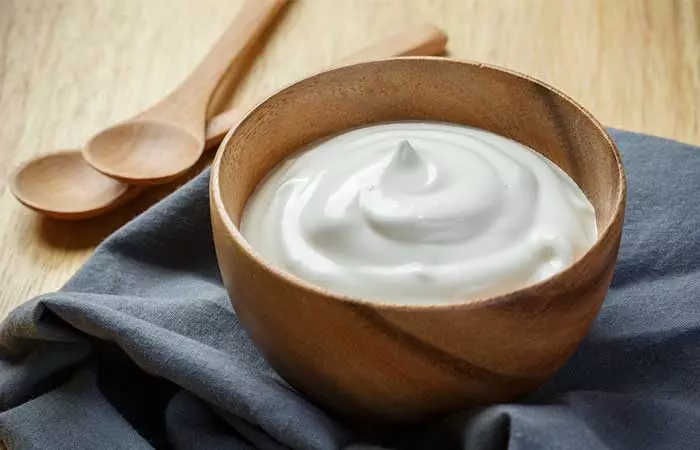
You Will Need
1 small cup of probiotic yogurt
What You Have To Do
Consume a small cup of probiotic yogurt.
How Often You Should Do This
You must incorporate yogurt into your daily diet.
Why This Works
Yogurt is a rich source of probiotics, which are the good bacteria similar to your gut microflora. These act as the first line of defense and protect your intestine from infection and disorders (11). Fermented foods or drinks such as Kefir have a concentrated content of probiotics, which can also help with gut health.
12. Vitamin D
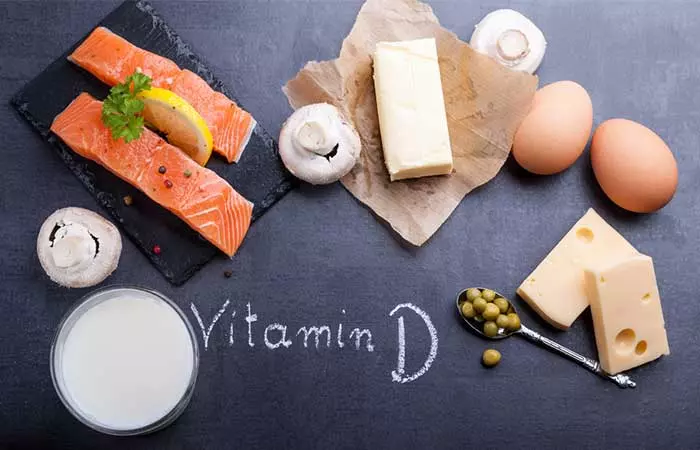
You Will Need
20-100 mg of vitamin D
What You Have To Do
- Consume foods rich in vitamin D like yogurt, coconut water, fish, cereals, soy, and eggs.
- You can also take supplements for vitamin D. Check with your doctor first, though.
How Often You Should Do This
You must do this on a regular basis.
Why This Works
Vitamin D, like probiotics, restores the healthy gut bacteria. It also improves metabolism and helps treat digestive problems like inflammatory bowel disease (12).
 Quick Tip
Quick Tip13. Green Tea
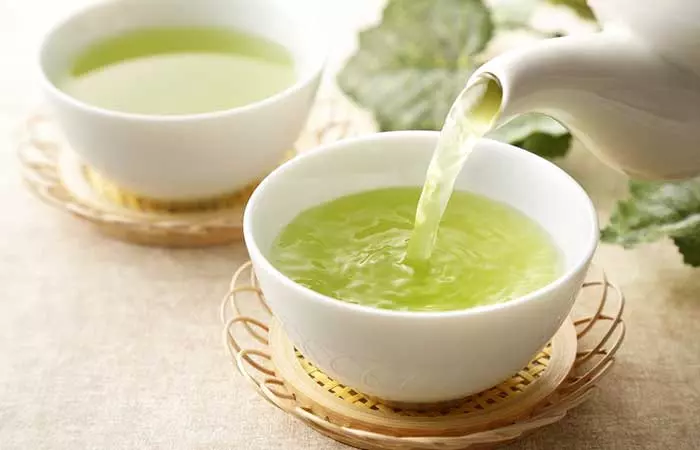
You Will Need
- ½ teaspoon of green tea
- 1 cup of water
What You Have To Do
- Add half a teaspoon of green tea to a cup of hot water.
- Brew for 3 to 4 minutes and strain.
- Drink the green tea.
How Often You Should Do This
You must drink green tea at least twice daily.
Why This Works
Green tea is an excellent source of polyphenolsi A naturally occurring plant micronutrient that can benefit your health because of its antioxidant and anti-inflammatory properties. . Once inside your gastrointestinal tract, green tea activates intracellular antioxidants, which prevents damage to your gastrointestinal tract (13).
14. Lemon Juice
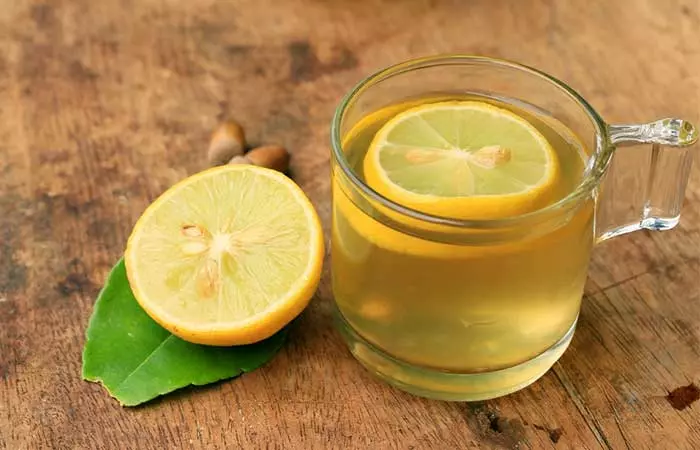
You Will Need
- ½ lemon
- 1 glass of warm water
- Honey
What You Have To Do
- Extract the juice of half a lemon and add to a glass of water.
- Mix well and add some honey for flavor.
- Consume right away.
How Often You Should Do This
You must drink the juice daily, preferably before breakfast.
Why This Works
Lemon juice flushes toxins out of your body and refreshes and rehydrates it. The juice also boosts metabolism, thereby aiding digestion and helping curb obesity (14).
15. Figs
You Will Need
- Fresh or dried figs
What You Have To Do
- Eat fresh figs when they are in season, or go for dried figs.
- Have a handful of dried figs as a snack.
- Incorporate them into salads, oatmeal, or have them with yogurt.
Why This Works
Figs are a good source of dietary fiber, making them beneficial for digestive health. Fiber promotes regular bowel movements and prevents constipation. Additionally, figs contain natural enzymes that may assist in breaking down food more efficiently. A study found that individuals who consumed figs experienced significant improvements in various IBS symptoms, including reduced pain frequency, diminished distention, and normalized bowel habits (15).
Natural remedies not only help relieve symptoms but also promote long-term digestive health. You can improve your general and intestinal health by including these cures in your daily routine.
What you eat and don’t eat has a major role to play in treating your digestive problems. In addition to the remedies listed above, the following diet tips will also help.
Diet Tips
There are foods that boost digestive health, and there also are foods that can aggravate an existing condition. So, you must be conscious about your eating habits. We are here with two food lists – one that you should eat more of and the other that you need to avoid – to successfully combat digestive problems.
Best Foods For Treating Digestion Problems
- Yogurt
- Kimchi
- Lean fish and meat
- Bananas
- Moderate amounts of ginger
- Papaya contains the enzyme papain, which breaks down food and aids better digestion as well as nutrient absorption.
- The high fiber content in oatmeal, flaxseed, and psyllium husk makes them gut-friendly foods.
- A moderate quantity of garlic can reduce inflammation and boost nutrient absorption and digestion.
- Activated charcoal may help in trapping gas produced in the intestine.
- Baking soda helps neutralize the acid in the stomach and relieves heartburn.
- Bone broth contains gelatin, which helps relieves IBS.
Foods that you need to avoid as they can worsen your digestive issues are as follows.
Foods That Can Aggravate Digestive Problems
- Fried foods
- Chili peppers
- Dairy
- Alcohol
- Certain berries
- Chocolate
- Caffeinated drinks like tea, coffee, and soft drinks
- Corn
You also need to make a few changes to your daily lifestyle choices to prevent the recurrence of digestive issues. Here are some tips that will undoubtedly help.
Prevention Tips
- Quit smoking.
- Cut back on acidic and high-fat foods.
- Follow a healthy and high-fiber diet.
- Indulge in light exercises at least 5 times a week.
- Avoid regular use of medications like aspirin.
- Avoid taking steroids and sulfa drugs (unless your doctor says otherwise).
While implementing these prevention tips may help manage digestive health, it is essential to recognize when you should seek medical advice. Scroll down to know more.
When To Seek Medical Advice
If you have diarrhea or constipation that lasts more than a week, severe cramps, blood in your stool or vomit, unexplained weight loss, or persistent abdominal pain, get medical help for digestive issues. Additionally, seek medical attention from a physician if you experience symptoms associated with fever, exhaustion, or jaundice, persistent heartburn that is not eased by over-the-counter drugs, problems swallowing, or signs of dehydration. Timely attention ensures the right course of action and helps identify any underlying issues.
 Quick Tip
Quick TipInfographic: 8 Signs That Your Digestive Problems Need Medical Attention
Digestive issues are often commonplace and easily alleviated with natural staple ingredients or over-the-counter medications. However, recurring or severe digestive issues may sometimes point to an underlying health condition that warrants professional medical intervention.
Check out the infographic to learn about the signs indicating the need for medical attention for your digestive troubles. Illustration: StyleCraze Design Team
Chronic constipation, GERD, food intolerance, and inflammatory bowel disease are some common digestive problems that present with varied symptoms, but all of these indicate an issue with the digestive system. Home remedies for digestive problems like chamomile tea, apple cider vinegar, peppermint, aloe vera, fennel seeds, black pepper, green tea, and lemon juice can help calm an inflamed and irritated digestive system and improve its functioning. However, if your digestive issues persist or worsen even after following the remedies diligently, you should seek medical attention to check for underlying health concerns. It is important to treat digestive problems as early as possible to avoid further health complications.
Frequently Asked Questions
Can diet changes help with digestive issues?
Yes, making changes to your diet may help improve digestive issues by reducing their symptoms and promoting gut health. Increasing the amount of foods high in fiber, cutting less on processed foods, and taking probiotics may help improve digestion and promote overall well-being.
Which vegetables help digestion?
Cruciferous vegetables (like broccoli, cauliflower, Brussel sprouts, and cabbage), leafy greens (like kale and spinach), artichokes, and beetroot may help digestion.
Is honey good for digestion?
Yes, honey is good for digestion and may help treat diarrhea (16).
How can I manage stress to improve my digestion?
Exercise is one of the key ways to manage stress and improve digestive health. It helps boost the growth of good bacteria and boosts positive mood. (17), (18), (19)..
When should I seek medical advice for my digestive problems?
If an individual experiences chronic abdominal pain, severe heartburn, pain while swallowing foods, or vomiting, seek medical attention immediately.
Some thing wrong with illustration image shortcode. please verify shortcode syntax
Want to know about some effective home remedies for indigestion? Check out the video below for a simple fennel tea recipe that can help improve your digestive health.
Personal Experience: Source
StyleCraze's articles are interwoven with authentic personal narratives that provide depth and resonance to our content. Below are the sources of the personal accounts referenced in this article.
i. Exercising and Eating Right, But NOT Losing Weight?https://gettingactivegettinghealthy.wordpress.com/2012/12/04/exercising-and-eating-right-but-not-losing-weight/
References
Articles on StyleCraze are backed by verified information from peer-reviewed and academic research papers, reputed organizations, research institutions, and medical associations to ensure accuracy and relevance. Read our editorial policy to learn more.
- Chamomile: A herbal medicine of the past with bright future
https://www.ncbi.nlm.nih.gov/pmc/articles/PMC2995283/ - STUDY ABOUT THE NUTRITIONAL AND MEDICINAL PROPERTIES OF APPLE CIDER VINEGAR
https://www.researchgate.net/publication/322953260_STUDY_ABOUT_THE_NUTRITIONAL_AND_MEDICINAL_PROPERTIES_OF_APPLE_CIDER_VINEGAR_ARTICLE_INFO_ABSTRACT - The Amazing and Mighty Ginger
https://www.ncbi.nlm.nih.gov/books/NBK92775/ - Nutritional and medicinal aspects of coriander (Coriandrum sativum L.) A review
https://www.researchgate.net/publication/236879895_Nutritional_and_medicinal_aspects_of_coriander_Coriandrum_sativum_L_A_review - Functional constituents and processing of pumpkin: A review
https://www.researchgate.net/publication/281316152_Functional_constituents_and_processing_of_pumpkin_A_review - A Novel Delivery System of Peppermint Oil Is an Effective Therapy for Irritable Bowel Syndrome Symptoms
https://www.ncbi.nlm.nih.gov/pmc/articles/PMC4729798/ - The effect of fennel (Foeniculum Vulgare) seed oil emulsion in infantile colic: a randomized placebo-controlled study
https://pubmed.ncbi.nlm.nih.gov/12868253/ - Pharmacological basis for the medicinal use of black pepper and piperine in gastrointestinal disorders
https://pubmed.ncbi.nlm.nih.gov/20828313/ - Aloe vera in treatment of refractory irritable bowel syndrome: Trial on Iranian patients
https://www.ncbi.nlm.nih.gov/pmc/articles/PMC3872617/ - Therapeutic potential of curcumin in digestive diseases
https://www.ncbi.nlm.nih.gov/pmc/articles/PMC3882399/ - Yogurt and gut function
https://academic.oup.com/ajcn/article/80/2/245/4690304 - Vitamin D and gastrointestinal diseases: inflammatory bowel disease and colorectal cancer
https://www.ncbi.nlm.nih.gov/pmc/articles/PMC3036961/ - Pharmacological effects of green tea on the gastrointestinal system
https://pubmed.ncbi.nlm.nih.gov/15464031/ - Does short-term lemon honey juice fasting have effect on lipid profile and body composition in healthy individuals?
https://www.ncbi.nlm.nih.gov/pmc/articles/PMC4910284/ - Comparison and Assessment of Flixweed and Fig Effects on Irritable Bowel Syndrome with Predominant Constipation: A Single-Blind Randomized Clinical Trial https://pubmed.ncbi.nlm.nih.gov/30318190/
- “Honey and Health: A Review of Recent Clinical Research” Pharmacognosy Research, US National Library of Medicine
https://www.ncbi.nlm.nih.gov/pmc/articles/PMC5424551/ - Regular exercise is associated with emotional resilience to acute stress in healthy adults
https://www.ncbi.nlm.nih.gov/pmc/articles/PMC4013452/ - The Impacts of Physical Exercise on Stress Coping and Well-Being in University Students in the Context of Leisure
https://www.researchgate.net/publication/276498152_The_Impacts_of_Physical_Exercise_on_Stress_Coping_and_Well-Being_in_University_Students_in_the_Context_of_Leisure - Exercise Modifies the Gut Microbiota with Positive Health Effects
https://www.ncbi.nlm.nih.gov/pmc/articles/PMC5357536/
Read full bio of Dr. Jessica Peatross
Read full bio of Shaheen Naser
Read full bio of Arshiya Syeda
Read full bio of Dipti Sharma














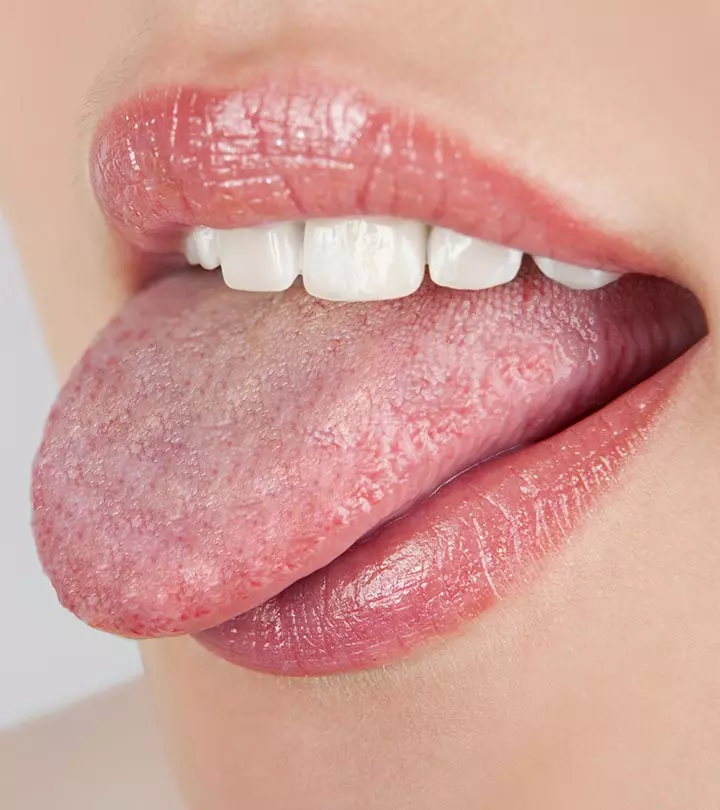












Community Experiences
Join the conversation and become a part of our empowering community! Share your stories, experiences, and insights to connect with other beauty, lifestyle, and health enthusiasts.